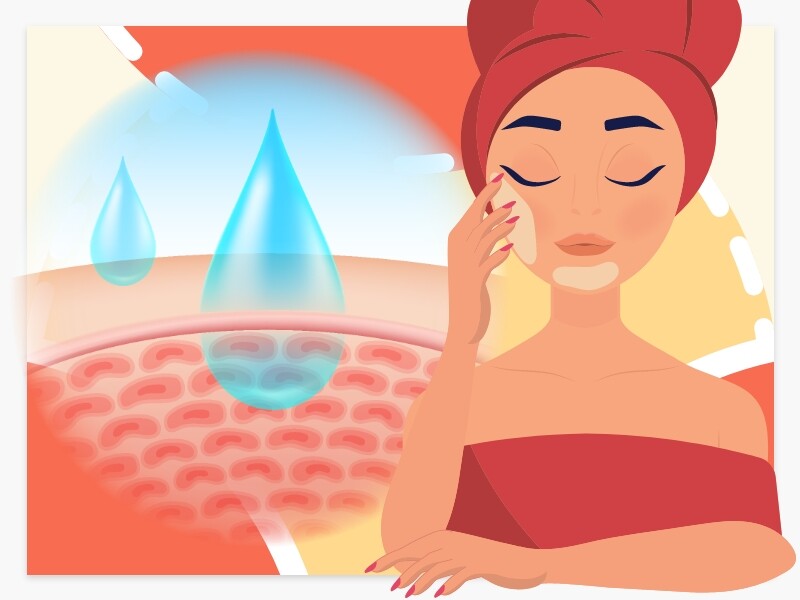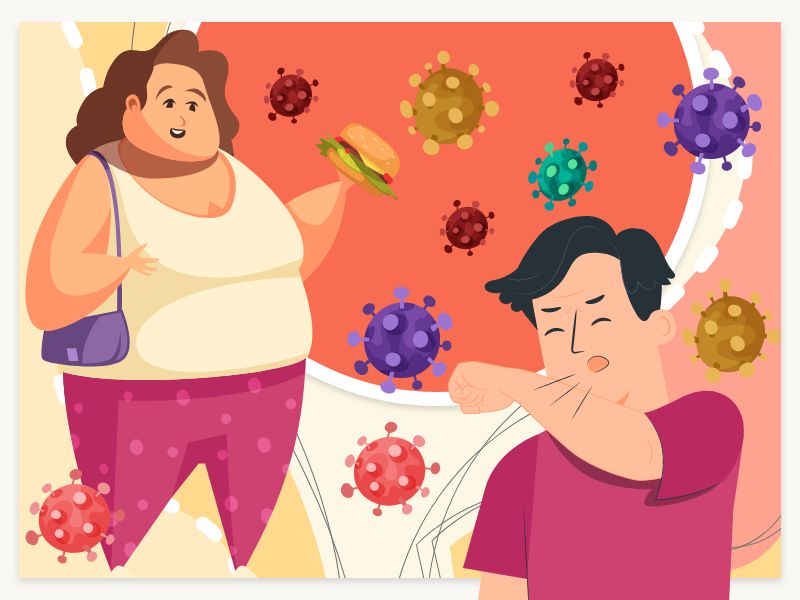What Is The Role Of Probiotics In Skin Care?

The role of probiotics in skincare has excellent value. Probiotics can help you get healthy and glowing skin. Besides being great for your gut health, probiotics can also work wonders for your skin’s health. The goal of probiotic skin care is to help restore the delicate balance that allows good bacteria to flourish so that skin can keep itself in peak shape.
How Do Probiotics Help In Skin Health?
General Use: Probiotics are a healthy type of live bacteria and yeasts that offer essential benefits for the overall health of our digestive system. The most common place to find probiotics are yogurt and daily supplements, and they can block pathogens and balance bacteria in the stomach to prevent cramping, bloating, and other issues.
Much like how probiotics work to prevent and treat stomach problems, topical versions also have been shown to have a calming effect on the skin by stimulating a surge of good bacteria that help skin cells thrive. The bacteria cell content works along with receptors to modulate the immune response, which significantly helps to soothe skin that’s become inflamed.
The bacterial ecosystem naturally found on our skin plays a vital protective role, which can be easily damaged with harsh soaps and stringent cleansers. It can result in skin that is stressed, dry, and sensitive. Adding probiotics to your skin care regimen can help rebuild this healthy skin ecosystem, giving you the healthy-looking skin you desire.
Skincare Use: The exact definition of probiotics is any micro-organism that can befit its host. Such an expansive open definition allows manufacturers to use various probiotics in their skin care products. Skin’s surface is a multifaceted environment, almost like a city of living things populating and working in every part. Probiotics play a crucial role in keeping it in balance.

Stabilizing the microbiome helps:
- Enhance skin’s ability to become and stay properly hydrated
- Strengthen skin’s surface against environmental invaders
- Diminish factors that trigger sensitized, reddened skin
- Restore a healthy pH balance to the skin’s surface
- Visibly improve signs of dryness, including a tight, uncomfortable feeling
How Does Probiotics Help With Scars?
Probiotic therapy significantly reduced type I collagen mRNA concentrations and total collagen protein accumulation in infected wounds, consistent with reduced scarring. Surprisingly, the probiotic showed a nearly equivalent effect in uninfected wounds.
Probiotics are a breakthrough in skin care, recognized for their clinically proven ability to soothe and calm skin inflammation and balance the microbiome. These natural, good-for-you bacteria work to improve your health, both inside and out. Probiotics can act as a protective layer on the skin, locking in moisture for a more radiant, hydrated, and balanced appearance. They are clinically proven to reduce the appearance of inflammation and can also help to reduce the appearance of redness and irritation, which helps improve the skin’s clarity and tone. Probiotics can also help defend the skin against age-accelerating environmental stressors and free radicals, which can help the appearance of fine lines and wrinkles.
Can Probiotics Help With Skin And Protect You From UV?
UV exposure is linked to many physical changes within our skin, such as sunburn, tanning, inflammation, and photoaging. Exposure to the sun, for example, accounts for 80% of the visible signs of skin aging, which includes dryness, wrinkling, and solar freckles. Cancer risk is another area linked to UV. One study showed that individuals with early signs of sun-induced wrinkling on their necks were over four times more susceptible to skin cancer.
There is now a growing bank of evidence to suggest a knock-on effect of UV-induced microbial alterations for various aspects of our health and well-being, such as skin condition and susceptibility to some types of disease. As well as reinforcing the importance of protecting ourselves against the sun, this highlights a potential role for skin bacteria in mitigating and treating the effects of UV exposure.
Skin pigmentation has long been our primary natural defense against the sun, with melanin absorbing harmful UV and offering antioxidant properties. Bacteria can also produce UV-absorbing biomolecules as protection, opening up the possibility of controlling pigmentation using microbes and pre- or probiotic derivatives while benefitting from their antioxidant and anti-inflammatory properties.






